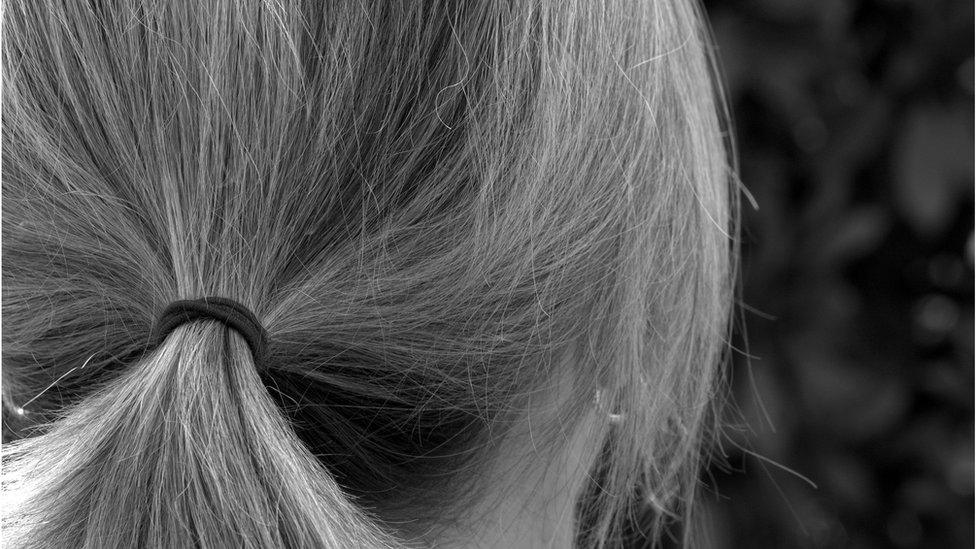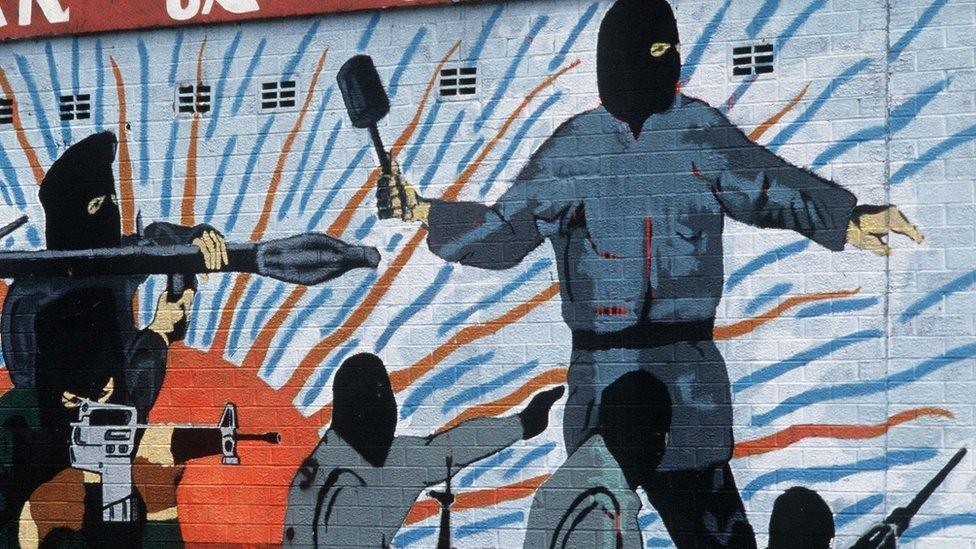Women's scheme to tackle paramilitarism in 'limbo'
- Published

Women involved in a programme aimed at tackling paramilitarism say they are angered over a lack of clarity around funding.
The Women Involved in Community Transformation, external scheme is due to end in September.
Those involved say further funding has been allocated but it is not clear how it will be used.
The Department for Communities said it was considering proposals and a decision will come shortly.
The department operates the programme on behalf of the Department of Justice, which funds it.
It is believed about 850 women have taken part in the programme since 2017.
Part of Stormont's Tackling Paramilitarism programme, the Women Involved in Community Transformation (WICT) scheme is available across Northern Ireland and runs a variety of training, including health and wellbeing, leadership and mentoring skills and courses in peace building and citizenship.
'Women using their voices'
One woman in her 50s, who has been involved in the scheme for years, told BBC News NI women felt empowered by the project.
"The impact on me and watching other women go through the programme - giving us the self-awareness, self-esteem and building up confidence - was huge," she added.
"I saw women who started to make a shift in their community by using their voices.
"Now I feel it's been cut off at the knees. We were given all these skills and now it's been stolen from us."
She said the general feeling among participants was "anger and sadness".
"I am seeing women who have been very courageous and have sacrificed a lot to even get to go there. Some people had to sneak out and say they were going somewhere else," she added.
"We've built people up to be leaders in their homes and communities, helped them and everyone is so proud and now it feels like a dead end."
Patricia Lewsley-Mooney, chairwoman of the Training For Women Network, said if the programme was withdrawn it would have a huge effect on the women who take part.
Her organisation is involved in delivering the programme.
She said after two three-month extensions, they had expected a decision in a "timely manner".
She said the Department of Justice had allocated further funding to the Department for Communities, but no information had been provided as to how this would be rolled out.
Ms Lewsley-Mooney said the lack of clarity was "very unsettling for the women".
"Some women didn't come out from behind their front doors for maybe 20 years because of the paramilitarism in their community," she added.
"About 84% of them have never been in a women's centre or part of a women's group. All of a sudden they have got a voice in this community and are able to identify issues in this community that they are able to make a difference."
Many of the women go on to create women's groups in their communities and youth projects.
Some have become mediators within their own communities.
"Often there are difficulties between paramilitaries and young people and they [WICT participants] will be quietly involved on the ground, behind the scenes, when there is trouble flaring up in a community," Ms Lewsley-Mooney said.

East Belfast Democratic Unionist Party assembly member Joanne Bunting, who has been contacted by some of the women involved, accused Communities Minister Deirdre Hargey of "indecision" and "dithering".
"It [WICT scheme] has made a significant difference to their personal development and self-worth and they are increasingly concerned that as no decision has been taken, they are going to be abandoned by the system," Ms Bunting said.
She told BBC News NI women can be "massive instruments for change in their communities".
"For some of these women, they do not have it easy and for some there is coercion in their lives and in the community and this was a ray of light.
"It is working with around 850 women from across Northern Ireland, often who face difficult circumstances, and they are being left in limbo.
"Deirdre Hargey needs to step up and provide that clarity and certainty as a matter of urgency."
Ms Bunting said Ms Hargey needed "to do better for these women".
Related topics
- Published2 December 2020

- Published15 June 2021
